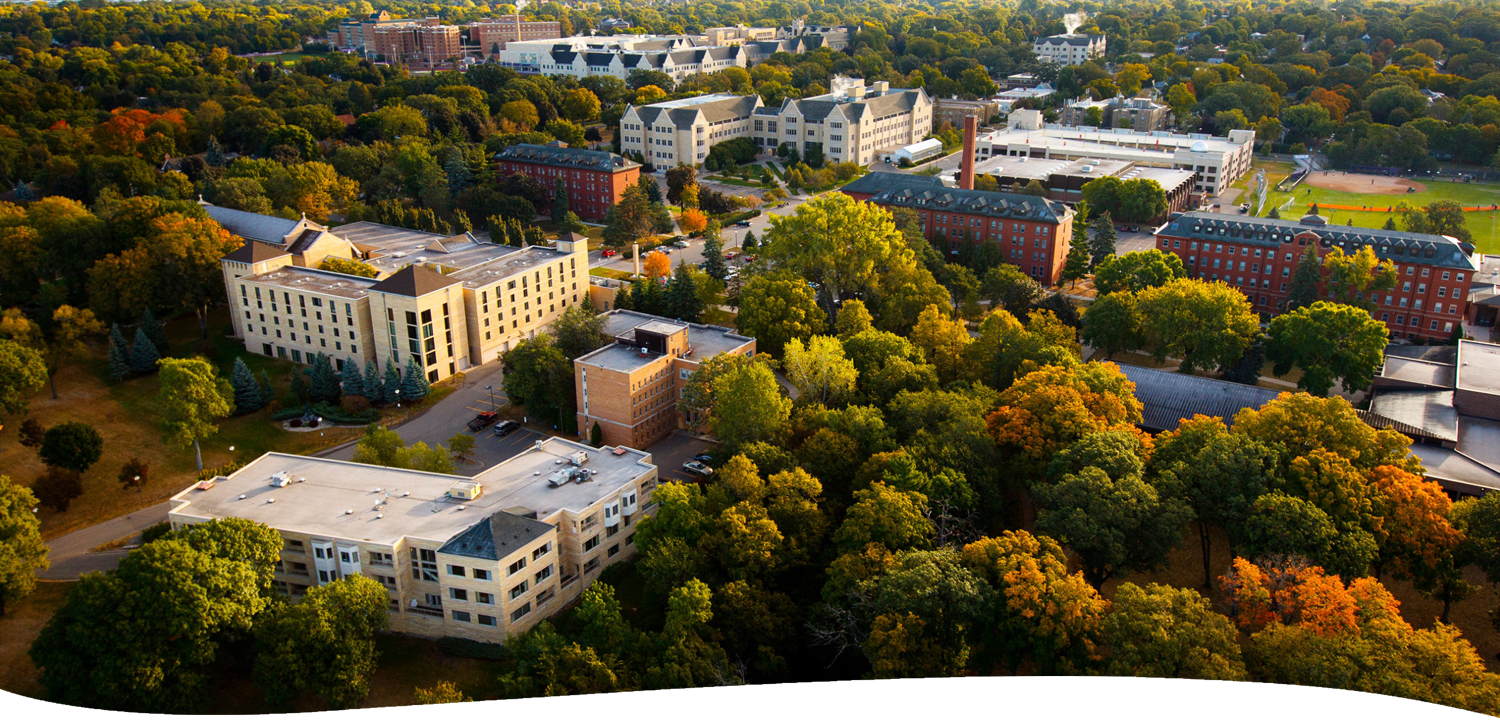
Roadmap to Carbon Neutrality at University of St. Thomas
Ever-Green Energy worked with the University of St. Thomas as part of our Roadmap to Carbon Neutrality program, which helps higher education institutions accelerate their efforts to achieve carbon neutrality. The program provides schools with pro bono planning services to evaluate campus energy efficiency and pathways to reduce Scope 1 and 2 carbon emissions.
Energy Master Planning
Ever-Green began its partnership with St. Thomas in 2019, working toward meeting the university’s goal of achieving campus carbon neutrality by 2035.
Ever-Green and St. Thomas collaborated to define a set of goals for St. Thomas’s campus carbon neutrality, providing Ever-Green with direction during the planning. The goals were as follows:
- Deliver long-term, cost-competitive energy services
- Develop carbon-neutral energy solutions
- Eliminate continual fossil fuel usage and related emissions
- Provide a means for St. Thomas’s goal of being carbon neutral
Ever-Green worked with St. Thomas staff to gather data on the existing buildings’ generation assets, building mechanical systems, square footage, and occupancy.
Ever-Green used this system data to develop an energy consumption profile for St. Thomas’s south campus. Our team established loads, evaluated energy supply and distribution options, and estimated capital investments and system life cycle costs in a 30-year life-cycle cost analysis model. The model compares the costs and carbon profiles for the university to heat, cool, and power the south campus under the business as usual scenario against several low-carbon energy solutions over that time period.
St. Thomas reported several plans for their existing and future energy infrastructure at the south campus. Based on these plans, Ever-Green evaluated viable options for decarbonizing their south campus. The proposed alternatives of biogas, biofuel, biomass, geothermal heat pumps, aquifer thermal energy storage heat pumps, and electric boilers were evaluated technically, financially, and environmentally and shared with St. Thomas, along with other recommendations.
About the University of St. Thomas
The University of St. Thomas is the largest private university in Minnesota, with more than 10,000 undergraduate and graduate students and 110,000+ alumni. They have eight schools and colleges that offer more than 150 undergraduate majors and minors and more than 55 graduate degree programs.
In 2008, the President of the University of St. Thomas signed on to the American College and University Presidents’ Climate Commitment, and in 2010, the university published a climate action plan and adopted a goal to achieve carbon neutrality by 2035.

